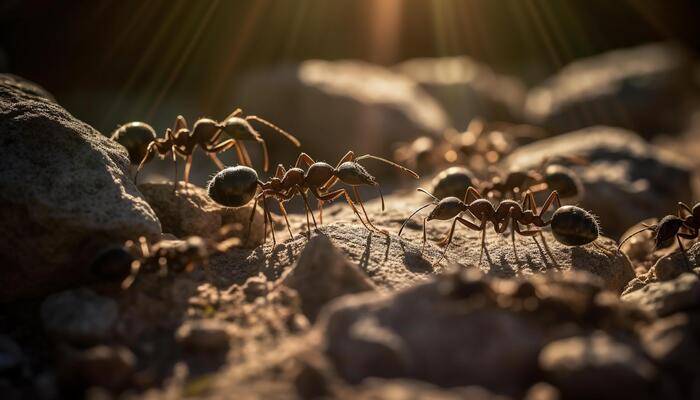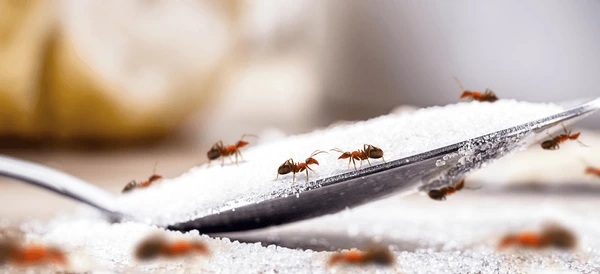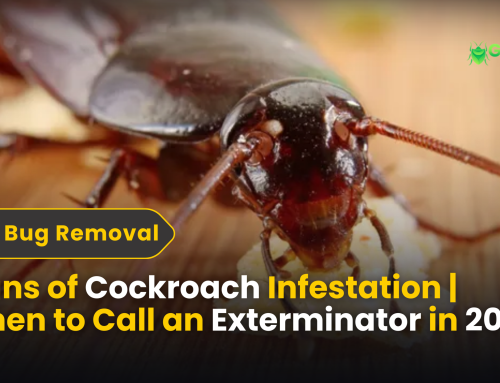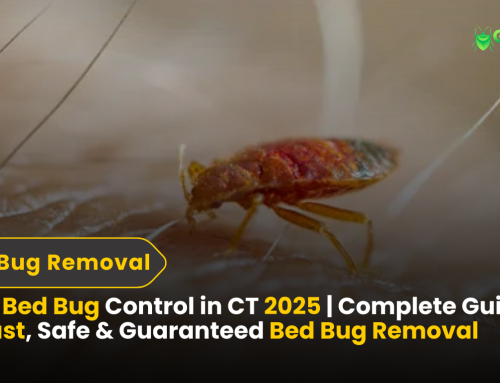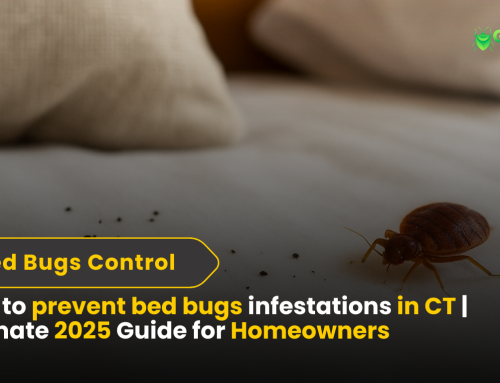09 Natural Methods to Remove Ants: A Remedy Guide to Pest Control 2025
Ant infestations can be frustrating, whether they invade your kitchen, garden, or other areas of your home. These pests are often attracted to food, water, and shelter, making it essential to eliminate their access points. While chemical solutions are available, many people prefer natural methods to remove ants effectively and safely.
Natural remedies like vinegar, lemon juice, cinnamon, and diatomaceous earth work by disrupting ant trails and deterring them from entering your home. Other solutions, such as baking soda and sugar traps, help eliminate ants naturally. Preventative measures, like sealing food, fixing leaks, and blocking entry points, can also reduce infestations.
For more severe cases, chemical methods such as ant baits, sprays, and insecticide dusts may be necessary. These treatments target colonies and provide long-term relief. If the infestation persists, professional pest control services can offer expert solutions, including eco-friendly treatments.
In this guide, we will explore the most effective natural ant control methods, discuss when chemical solutions may be necessary, and provide insights into professional pest control options. Additionally, we will answer common questions about ant infestations to help you make the best decision for your home.
Why Are Ants Invading In Your Home?
Ants enter homes primarily in search of food, water, and shelter. Once they find a reliable source, they leave behind a chemical trail, known as pheromones, to guide other ants to the location. This is why ant infestations can grow rapidly if not addressed early.
Common Reasons for Ant Infestations
- Food Crumbs and Spills
Ants have a keen sense of smell and are highly attracted to food crumbs, sugary substances, and grease. Even small food particles on kitchen counters or floors can attract them. - Unsealed Food Containers
Open food packaging, improperly stored pantry items, and pet food left out can provide easy access to ants. Keeping food in airtight containers can help prevent infestations. - Moisture and Water Leaks
Ants need water to survive. Leaky pipes, damp areas, and standing water create a perfect environment for ants to thrive. Fixing plumbing issues and reducing excess moisture can deter them. - Entry Points Like Cracks and Gaps
Small cracks in walls, gaps around windows, and openings in doors allow ants to enter easily. Sealing these entry points can help block their access.
09 Natural Methods to Remove Ants
If you prefer eco-friendly and chemical-free approaches, here are some of the best natural methods to eliminate ants from your home:
1. Vinegar Solution
Vinegar is one of the most effective natural remedies for repelling ants.
How to Use:
- Mix equal parts of white vinegar and water in a spray bottle.
- Spray the solution directly on ants or along their trails.
- Focus on entry points, kitchen counters, and areas where ants are frequently spotted.
How It Works:
The strong smell of vinegar disrupts ants’ pheromone trails, making it difficult for them to navigate back to food sources.
2. Lemon Juice
Lemon juice works similarly to vinegar, acting as a natural deterrent for ants.
How to Use:
- Squeeze fresh lemon juice around entry points, windows, doors, and kitchen surfaces.
- You can also mix lemon juice with water and spray it in ant-prone areas.
How It Works:
Lemon juice masks the scent trails that ants follow, making it harder for them to find food and return to their nests.
3. Cinnamon
Cinnamon is a powerful natural repellent that drives ants away with its strong smell.
How to Use:
- Sprinkle cinnamon powder around entry points and along ant trails.
- Place cinnamon sticks near windows, doorways, and pantry areas.
- Mix a few drops of cinnamon essential oil with water and spray it in affected areas.
How It Works:
Ants dislike the strong scent of cinnamon, making it an excellent barrier to prevent them from entering your home.
4. Baking Soda and Sugar Trap
Baking soda is an effective way to eliminate ants naturally.
How to Use:
- Mix equal parts of baking soda and sugar.
- Place small piles of this mixture near ant trails or infested areas.
How It Works:
The sugar attracts ants, while the baking soda disrupts their digestive system, ultimately killing them.
5. Diatomaceous Earth (Food-Grade)
Diatomaceous earth is a non-toxic powder that helps eliminate ants effectively.
How to Use:
- Sprinkle a thin layer of food-grade diatomaceous earth around entry points, window sills, and affected areas.
- Reapply if needed, especially after cleaning or rain.
How It Works:
This powder dehydrates ants by damaging their exoskeleton, causing them to die within hours. Be sure to use food-grade diatomaceous earth, as industrial-grade can be harmful to pets and humans.
6. Peppermint Essential Oil
Peppermint oil is a natural ant deterrent due to its strong, refreshing scent.
How to Use:
- Mix a few drops of peppermint essential oil with water and spray it around doors, windows, and ant trails.
- Soak cotton balls in peppermint oil and place them in infested areas.
How It Works:
Ants find the strong scent of peppermint overwhelming, making it an effective natural repellent.
7. Coffee Grounds
Used coffee grounds can help repel ants and keep them from returning.
How to Use:
- Sprinkle used coffee grounds in gardens, near entry points, or along known ant trails.
How It Works:
The strong scent of coffee masks ants’ pheromone trails, making it harder for them to find their way back.
8. Cucumber Peels
Cucumber peels contain bitter compounds that naturally repel ants.
How to Use:
- Place fresh cucumber peels near entry points, kitchen areas, and windows.
How It Works:
Ants dislike the bitterness and chemicals found in cucumber peels, making them an excellent natural deterrent.
9. Boiling Water
If you’ve located an outdoor ant nest, boiling water is a simple and effective solution.
How to Use:
- Bring a pot of water to a rolling boil.
- Carefully pour it directly over the ant hill.
How It Works:
The heat from the boiling water kills ants instantly and destroys their nest, preventing further infestation.
Our Chemical Methods for Ant Control
If natural remedies don’t work, stronger chemical solutions may be necessary. These methods are highly effective in eliminating ant infestations, but they should be used with caution, especially in homes with pets and children.
1. Ant Baits
Ant baits contain a slow-acting poison combined with an attractant. Worker ants consume the bait and carry it back to the colony, where it spreads to other ants, including the queen. Over time, this method effectively eliminates entire ant colonies.
2. Ant Sprays
Commercial ant sprays contain insecticides that kill ants on contact. They provide immediate relief by eliminating visible ants but do not address the root of the infestation. For long-term control, sprays should be used alongside other treatments.
3. Insecticide Dusts
Insecticide dusts are applied in cracks, crevices, and common entry points. These fine powders cling to ants, killing them gradually. While effective for long-term control, they should be used with caution around pets and children.
4. Barrier Treatments
Barrier treatments involve spraying insecticide around the perimeter of your home to create a protective shield against ants. This method is commonly used by professional pest control services for long-term prevention.
Professional Pest Control: When to Call Experts
If your ant problem is severe or keeps recurring despite using natural and chemical methods, it may be time to seek professional pest control services. Experts have the knowledge, tools, and treatments to eliminate ants effectively and prevent future infestations.
1. Identifying the Ant Species
Different ant species require different treatments. Professionals can identify the specific type of ant invading your home and apply the most effective control methods.
2. Targeting the Entire Colony
While DIY methods may kill visible ants, professionals use advanced baits and insecticides that reach the queen and eliminate the entire colony. This ensures long-term relief from infestations.
3. Preventive Solutions
Experts not only remove existing ants but also provide preventive measures to stop future infestations. They can seal entry points, suggest sanitation improvements, and recommend ongoing treatments.
4. Eco-Friendly and Non-Toxic Options
Many professional pest control companies offer eco-friendly, non-toxic solutions for homes with pets, children, or individuals sensitive to chemicals. These treatments provide safe yet effective ant control.
Preventing Future Ant Infestations
Once you’ve eliminated ants from your home, it’s essential to take preventive steps to ensure they don’t return. By making your home less attractive to ants, you can significantly reduce the chances of future infestations.
1. Keep Food Sealed and Clean Up Crumbs
Ants are drawn to food sources, especially sugary and greasy substances. Store food in airtight containers, wipe down surfaces, and clean up crumbs or spills immediately.
2. Fix Water Leaks and Remove Standing Water
Ants need water to survive. Repair leaky pipes, wipe up excess moisture, and eliminate standing water in sinks, pet bowls, and bathrooms to make your home less hospitable to ants.
3. Seal Entry Points
Cracks in walls, gaps around windows, and openings in doors provide easy access for ants. Use caulk or weather stripping to block these entry points and prevent ants from entering.
4. Clean Surfaces with Vinegar or Lemon Juice
Wiping countertops, floors, and kitchen surfaces with vinegar or lemon juice removes food residue and disrupts the ants’ pheromone trails, discouraging them from returning.
5. Use Natural Deterrents
Sprinkling cinnamon, coffee grounds, or using peppermint oil around entry points and infested areas can help repel ants naturally.
FAQs About Ant Pest Control
Q1: Are natural ant repellents as effective as chemical treatments?
Natural repellents work well for minor infestations but may not eliminate entire colonies like chemical treatments do.
Q2: What is the fastest way to get rid of ants?
For instant results, use chemical sprays, but for long-term control, ant baits or a combination of natural and chemical methods work best.
Q3: Can ants cause structural damage to a home?
Yes, certain species like carpenter ants can damage wood structures over time.
Q4: Do ants go away on their own?
Not usually. Once they find a food source, they will keep coming back unless removed.
Q5: Is diatomaceous earth safe for pets?
Food-grade diatomaceous earth is safe for pets, but industrial-grade should be avoided.
In Conclusion
Ant infestations can be a persistent problem, but with the right approach, they can be effectively managed. Natural methods such as vinegar, cinnamon, lemon juice, and diatomaceous earth offer safe and eco-friendly solutions for repelling ants. These remedies disrupt ant trails and deter them from returning.
For more severe infestations, chemical treatments like ant baits, sprays, and insecticide dusts may be necessary. These methods target the entire colony, ensuring long-term relief. If the problem persists, seeking professional pest control services can provide expert solutions, including eco-friendly options.
The key to long-term ant control is prevention. Keeping food sealed, cleaning up crumbs, fixing leaks, and sealing entry points can stop ants from invading your home. Regularly using natural deterrents, such as peppermint oil or coffee grounds, further helps keep ants away.
By following these strategies, you can effectively eliminate ants and maintain a pest-free home without relying heavily on harmful chemicals. Prevention and consistency are essential for lasting results.

